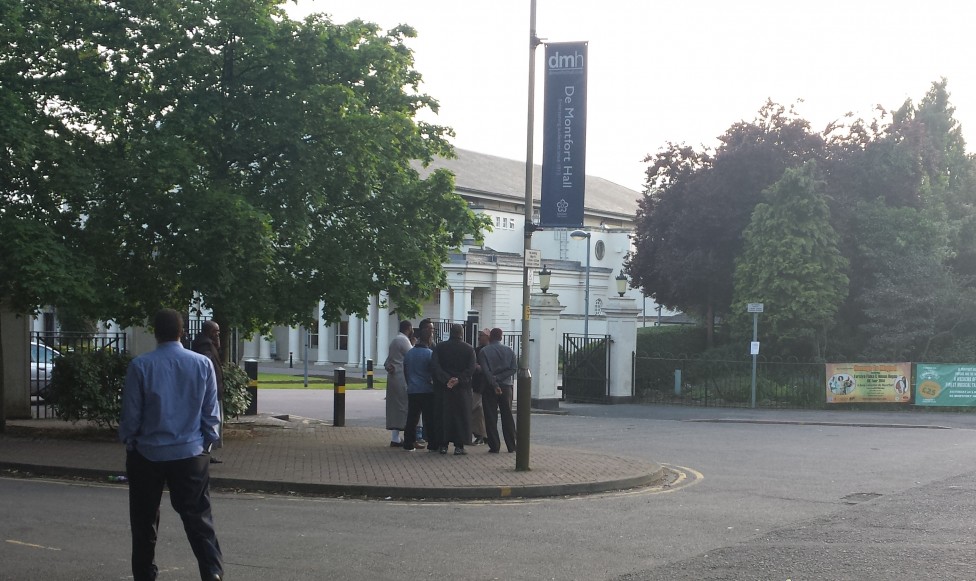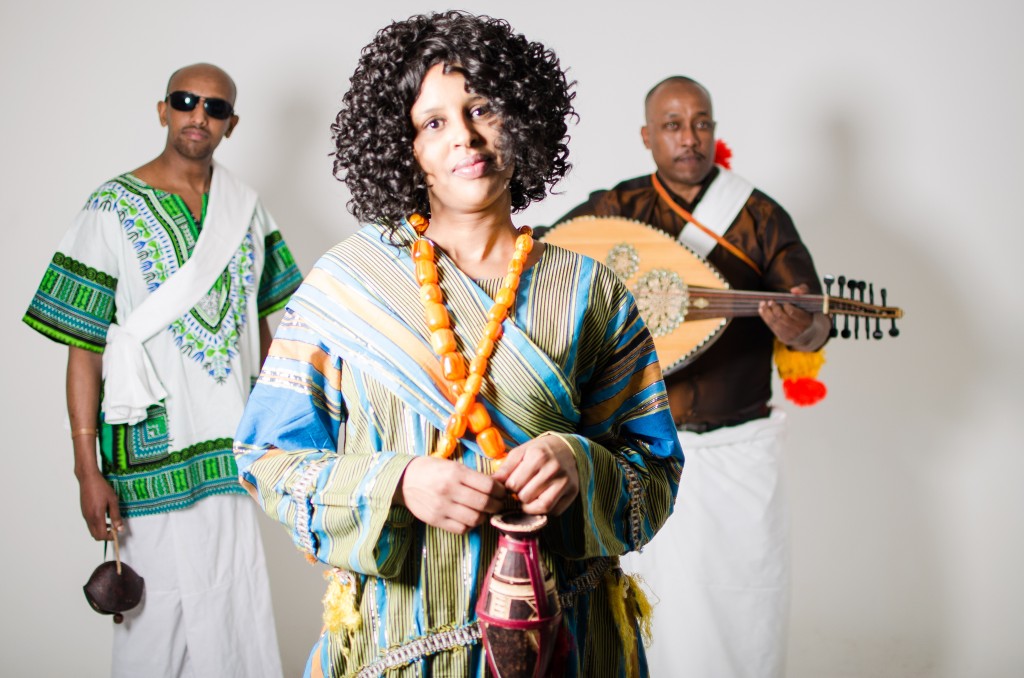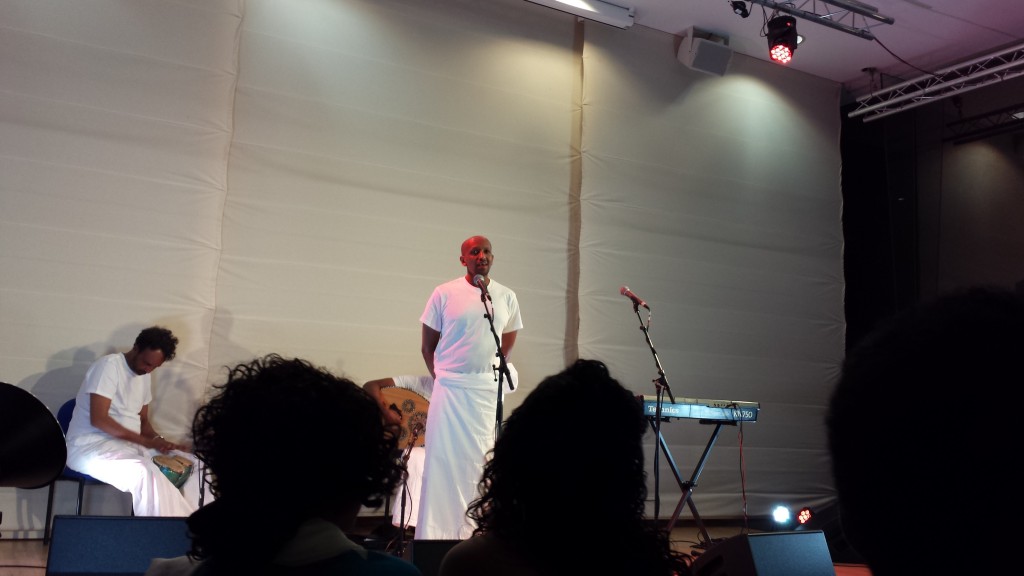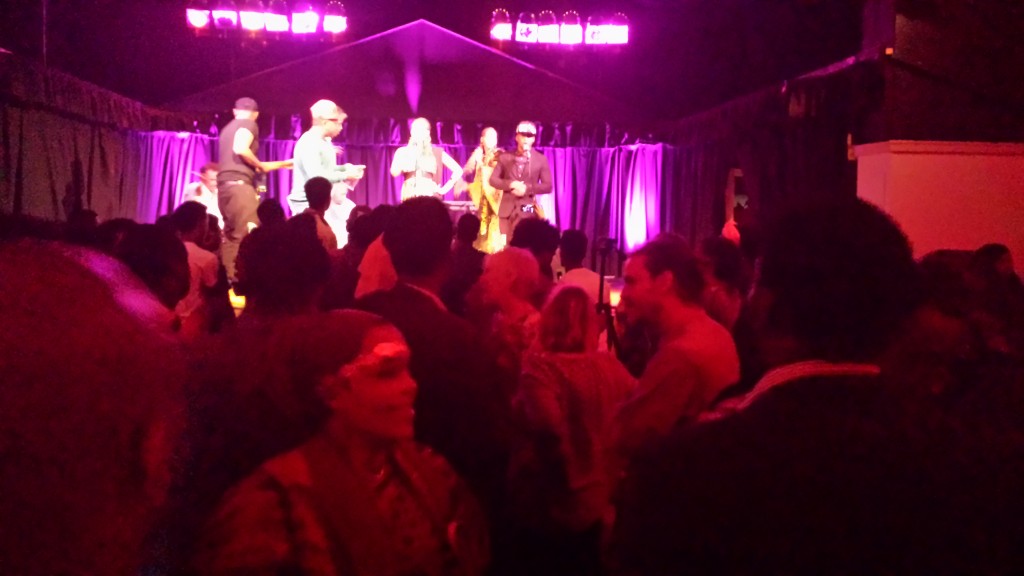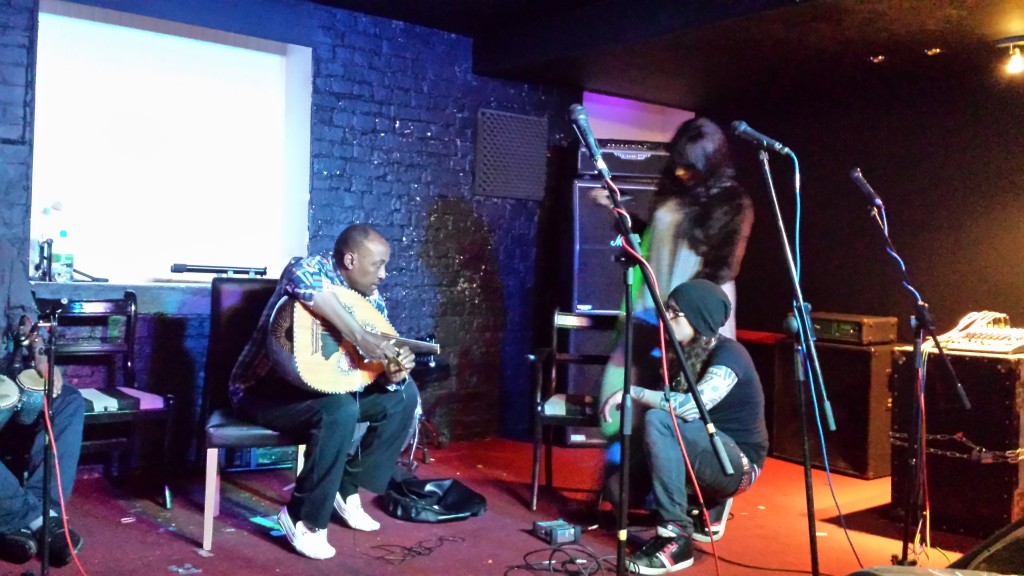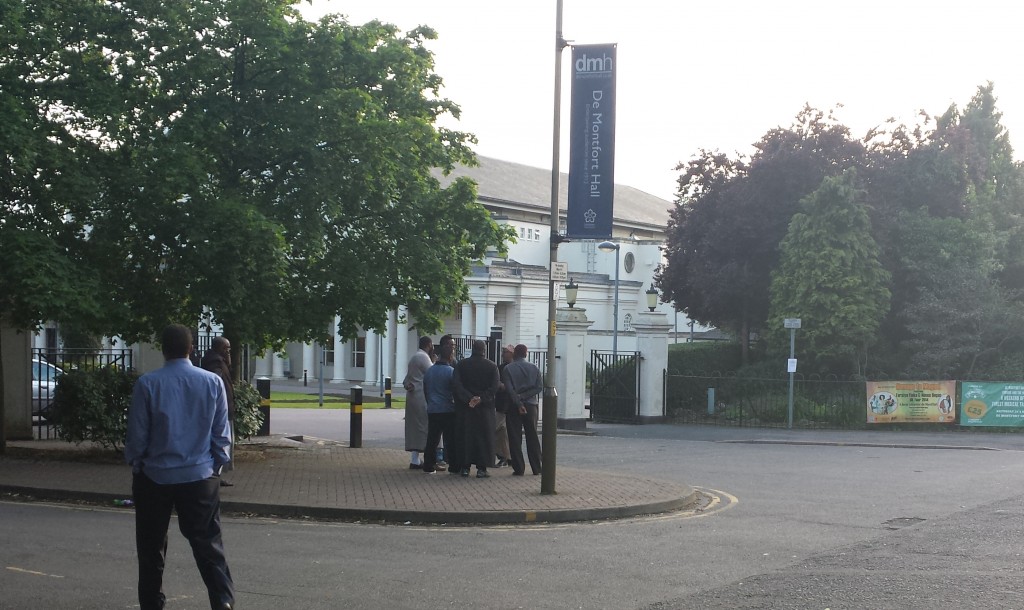There have been some challenging times for Somali music over recent year’s. The war has left its mark on all aspects of life across the diaspora and music isn’t an exception. Recent tours have brought out both fans and detractors with certain mosques, elders groups and individuals coming out against young people and women’s groups eager to see their music performed live and the artists who continue to maintain this tradition.
2014 saw the tour Homage to Magool visit six cities in the UK and present one of the most influential singers was celebrated through her songs being performed by a specially formed ensemble featuring the great Oud player Said Hussein and fronted by the most popular contemporary Somali singer Farhiya Fiska. After years of music being largely playback – singer performing to a backing track, Somali audiences were able to see classic songs written by Hadrawi performed in the Qaraami style, so popular to this day amongst all generations.
The tour aimed to reconnect communities to the classic Somali music of the past 4 decades and the heritage of the Somali diasporas, bringing it up to date. With a show that started in traditional style featuring Aydarus Yussuf performing songs by Omer Dhule and continued with songs like Jacayl Dhiig ma lagu qoray and Africaay Hurudooy performed by Fiska it continued with all the current hits with guest appearances by emerging talent such as Aid’arus Maliboi.
The show was popular with over 10,000 people seeing the tour, which visited the cities of London,
Leicester was the opening night of the tour with live filming from Somali National TV
Bristol
In Leicester where the tour was prepared the artist visited the community, but the welcome was mixed. A group of young women and men mobbed the tour bus, asking for photos and autographs and a mini online storm resulted.
But the mosques in Leicester did not approve and their response was to organise a picket. The effect was to stop many of the fans coming to the show for fear of the consequences. The picket though peaceful was intimidating to some, and a woman who had kindly offered to loan some traditional costumes withdrew her offer following pressure from certain sectors of the community. On the picket line I had a conversation with a taxi driver who when asked what the youth did he said that the girls secretly went down town without their veils to clubs. Reflecting on the respectable modestly dressed audience attending this alcohol free event I couldn’t help but wonder where the threat to Somali youth and heritage was coming from.

